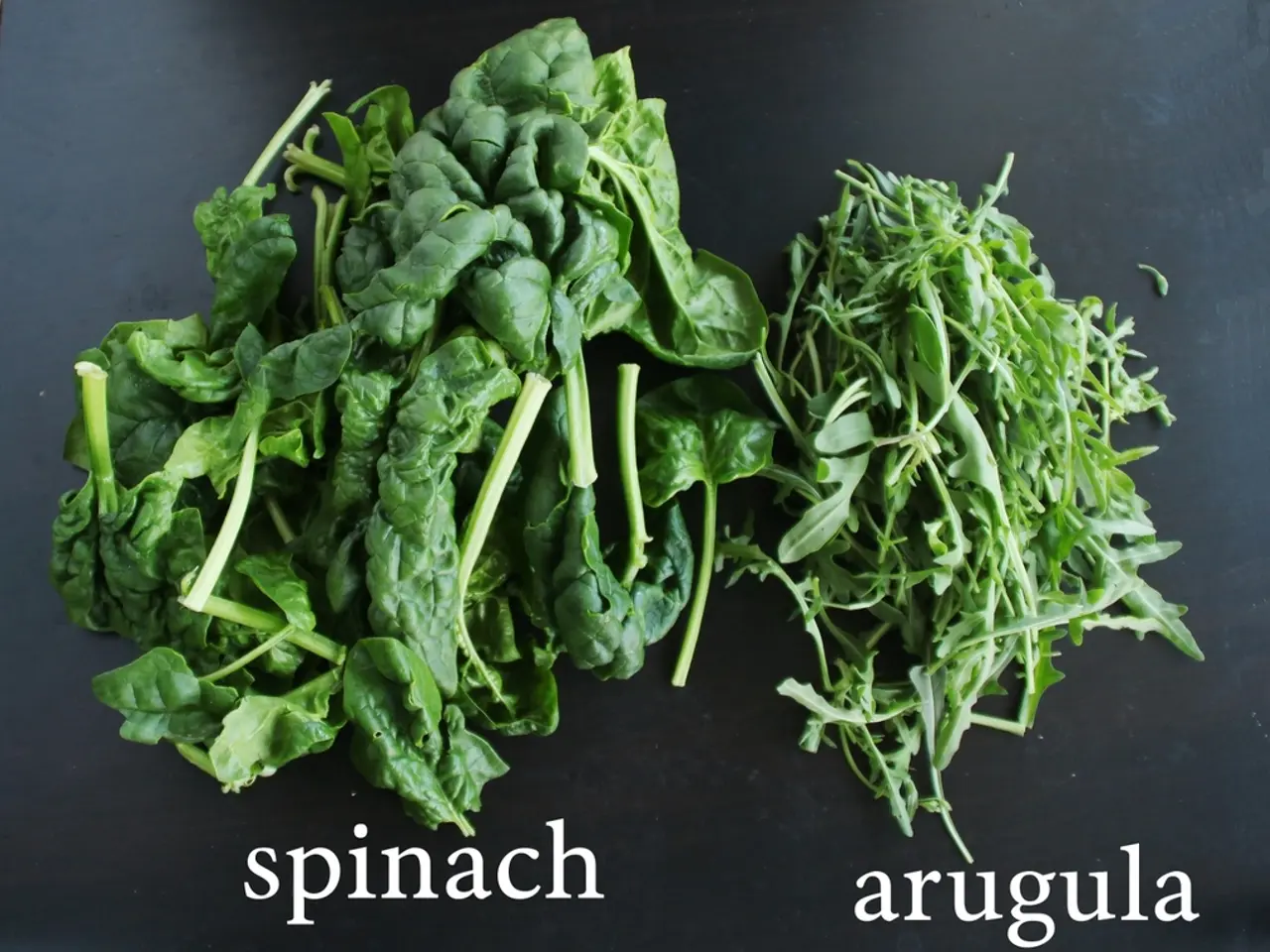Breakfast item that combats cholesterol, halting plaque formation
In the pursuit of maintaining a balanced and nutritious diet, oatmeal stands out as a superfood that offers significant health benefits, particularly for heart health. Rich in beta-glucan, a soluble fiber, oats help lower LDL (bad) cholesterol levels, reducing the risk of coronary artery disease and overall heart disease.
Beta-glucan, found in abundance in oats, forms a gel-like substance in the gut that binds cholesterol-rich bile acids and promotes their excretion, thus decreasing blood cholesterol levels. This gel-like substance also helps protect heart function and lower blood pressure, contributing to the overall cardiovascular benefits of oatmeal.
Moreover, oats aid in regulating blood sugar, an important factor in cardiovascular health as diabetes is a risk factor for heart disease. The consumption of oats may also promote gut health, which could have additional systemic benefits affecting cardiovascular risk.
For the most benefit, it's best to opt for whole or minimally processed oats over instant or flavored varieties, which may contain added sugars that counteract these positive effects. Incorporating oatmeal regularly into a balanced diet is a well-supported strategy to help manage cholesterol levels and support cardiovascular disease prevention.
As you enjoy the heart-healthy benefits of oatmeal, why not spice up your meals with some delicious recipes? Here are a few suggestions:
- Universal Chicken, Korean Carrot, and Pepper Salad: A refreshing and flavourful salad that's ready in no time.
- Lazy Khachapuri Without Baking: A cheesy, mouthwatering dish that's said to make family members lick their fingers.
- Hot Sandwiches in Minutes: Quick and easy sandwiches that will satisfy your hunger in a jiffy.
- Juicy Coleslaw with Sour Cream and Cheese: A creamy and crunchy side dish that's ready in just 30 minutes.
- Cheesecake Alternative: A simple, quick, and delicious dessert that's a healthier option for your sweet tooth.
Remember, it's essential to vary your diet and include different foods to ensure you're receiving a wide range of nutrients. Enjoy these recipes and the heart-healthy benefits of oatmeal!
[1] Hu, F. B., Stampfer, M. J., Mursu, J., Sun, Q., Bao, W., & Willett, W. C. (2011). Whole-grain intake and the risk of coronary heart disease: a systematic review and meta-analysis of prospective cohort studies. The American journal of clinical nutrition, 93(5), 984–991. [2] Jacobs, D. R., Krauss, R. M., O'Keefe, J. H., Hollander, A. B., Howard, B. V., Lichtenstein, A. H., ... & Sacks, F. M. (2010). AHA scientific statement: dietary factors favoring a reduced risk of coronary heart disease defined by low levels of LDL-C: a statement for healthcare professionals from the American Heart Association. Circulation, 121(4), 596–612. [3] Kahlmeier, S., & Koehler, K. (2016). Dietary fibre intake and cardiovascular health: a systematic review and meta-analysis of randomised controlled trials and cohort studies. British Journal of Nutrition, 115(3), 516–542. [4] Kris-Etherton, P. M., Howe, G. R., Blewitt, J. E., & Etherton, T. D. (2019). Dietary fiber and cardiovascular disease: a statement for healthcare professionals from the American Heart Association. Circulation, 139(15), e588–e609.
Beta-glucan, a soluble fiber found in abundance in oats, is not only effective in lowering LDL (bad) cholesterol levels but also aids in heart function regulation and blood pressure reduction. Science shows that incorporating oatmeal regularly into a health-and-wellness focused diet, such as one that emphasizes fitness-and-exercise and nutrition, can support cardiovascular health and disease prevention.




